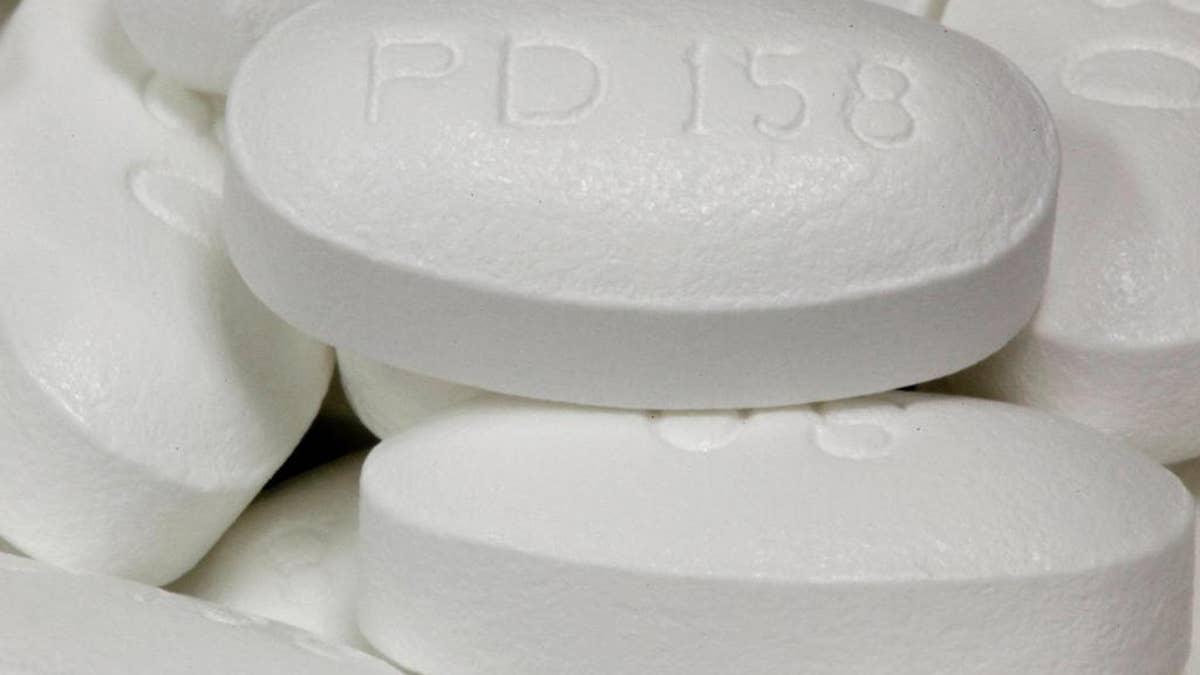
FILE - This June 14, 2011, file photo, shows the drug Lipitor at Medco Health Solutions Inc., in Willingboro, N.J. In a study published online Thursday, April 24, 2014, in JAMA Internal Medicine, 10 years of U.S. data suggest cholesterol-lowering statins are giving patients a license to pig out. Calorie and fat intake increased among statin users during the decade - an indication that many patients might be abandoning heart-healthy lifestyles and assuming that drugs alone will do the trick, the study authors said. (AP Photo/Matt Rourke, File) (The Associated Press)
Negative news stories about statins may prompt people to stop taking the cholesterol-lowering drugs, and raise their heart attack risk, suggests a new study from Denmark.
People who want to stop taking statins because of something they heard in the news should talk first to their doctors, "so they get a balanced view of the benefits and harms of taking the medicine," said senior author Boerge Nordestgaard, of the University of Copenhagen.
He and his colleague Sune Nielsen write in the European Heart Journal that statins are considered to be among the safest drugs. More than 90 percent of mild side effects, including muscle aches and general discomfort, occur during the first six months of treatment.
The researchers suggest that news coverage about these problems may influence people's decision to continue or discontinue their medication.
For the new study, they analyzed data on about 675,000 people in Denmark aged 40 and older who started taking statins between 1995 and 2010.
People who didn't fill a second statin prescription within six months were considered to have stopped taking their medicine early.
Overall, statin use increased from less than 1 percent of the population in 1995 to 11 percent in 2010. But the proportion of people who stopped taking the medicine during that time also increased, from 6 percent to 18 percent.
Meanwhile, the number of news stories about statins - positive, negative, or neutral - also rose, from 30 in 1995 to 400 in 2009.
Stories tended to focus on the drugs' side effects, said Nordestgaard.
The study team found that having been exposed to negative news stories about statins was tied to a 1.3 percent increased risk of stopping the medication early, compared to people who would not have seen the negative story.
Being on the drugs for a longer period of time, taking higher doses, living in cities and being non-Danish were also tied to increased likelihood of stopping statins early.
Exposure to positive statin news stories was tied to a 5.3 percent lower risk of stopping the medication early - along with having a history of heart disease and diabetes.
The researchers also found that people who stopped taking their statins early were at a 26 percent increased risk of having a heart attack and an 18 percent increased risk of dying of heart disease.
Taken together, Nordestgaard said the results show that negative news stories about statins can have serious consequences for people who are influenced to stop taking their medication.
"You need doctors to understand when there is negative media to explain to patients the benefits of using this medication outweighing the negative effects they read about in the newspaper yesterday," he said.
However, Dr. Jerry Avorn, of Brigham and Women's Hospital and Harvard Medical School in Boston, told Reuters Health in an email that the new study isn't convincing.
For example, he said, the analysis also found negative statin news stories are tied to an equivalent decrease in blood pressure medication use. Moreover, studies show that people who don't comply with medication use are more likely to smoke, not exercise, watch their diets and not take their other medications.
"So while it's true that media accounts probably do contribute to what patients believe and do about their medications overall, the simple association suggested here is problematic," said Avorn, who was not involved with the new study.








































